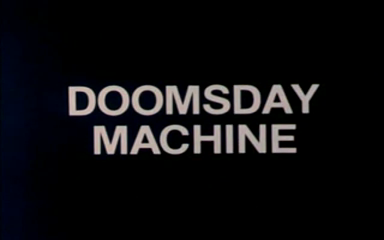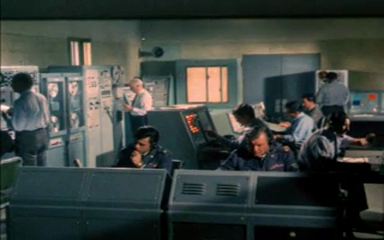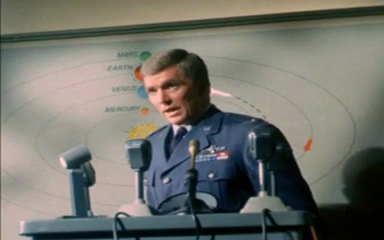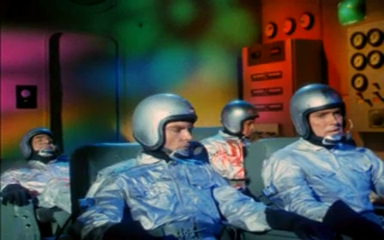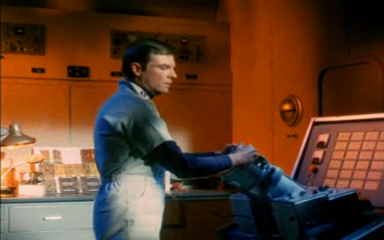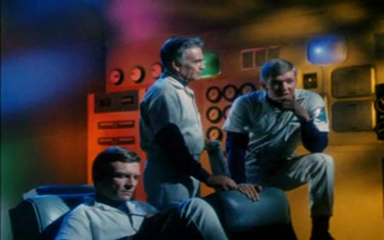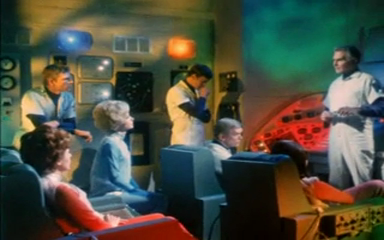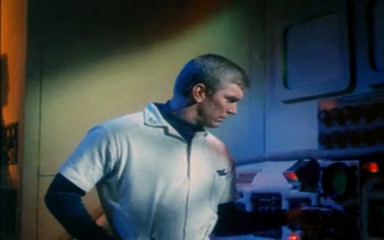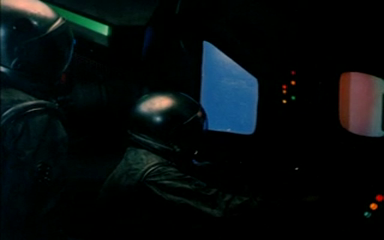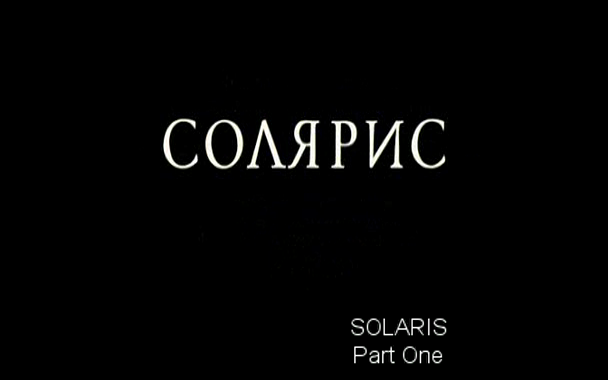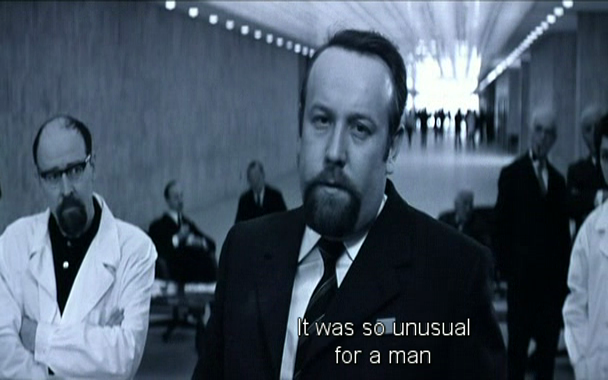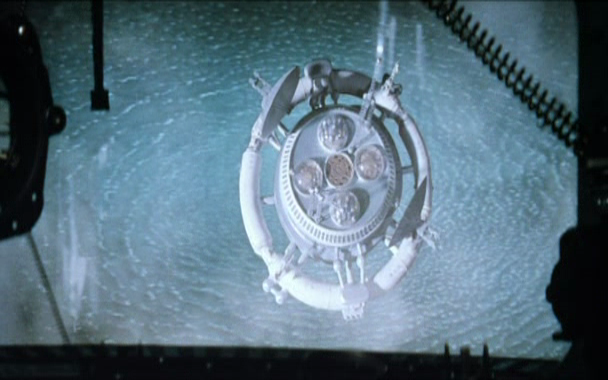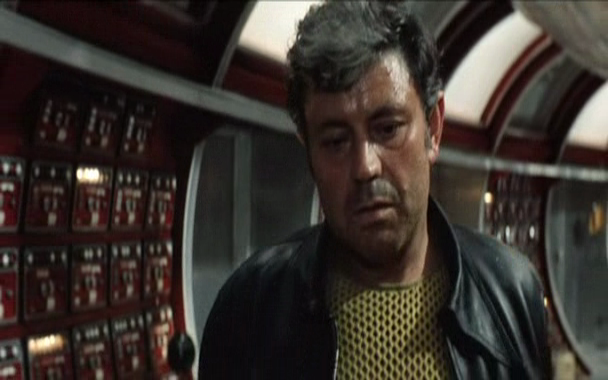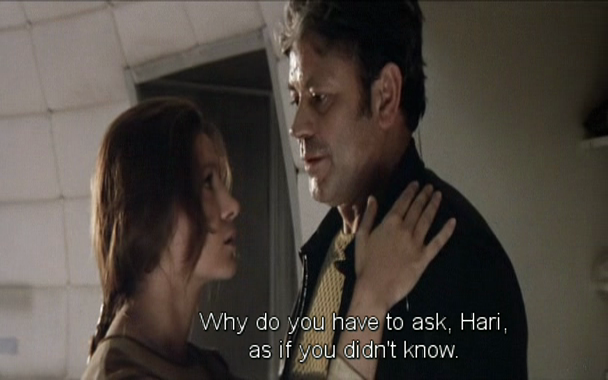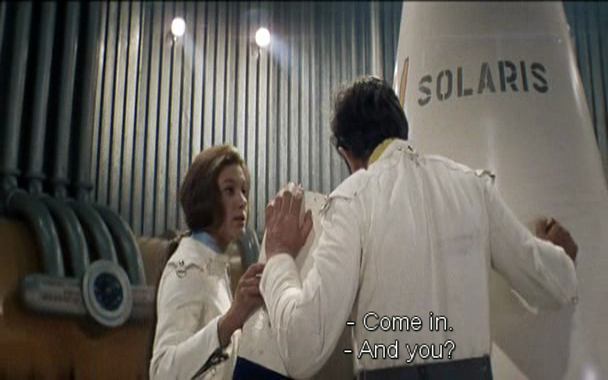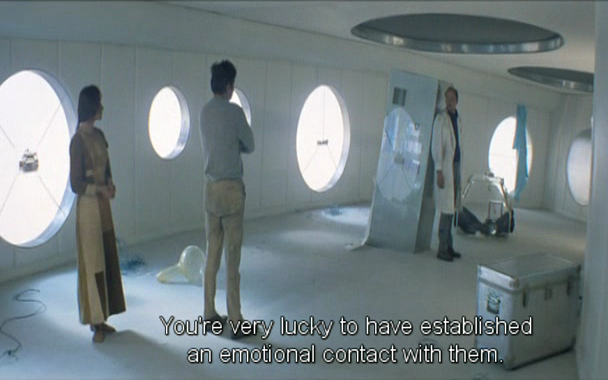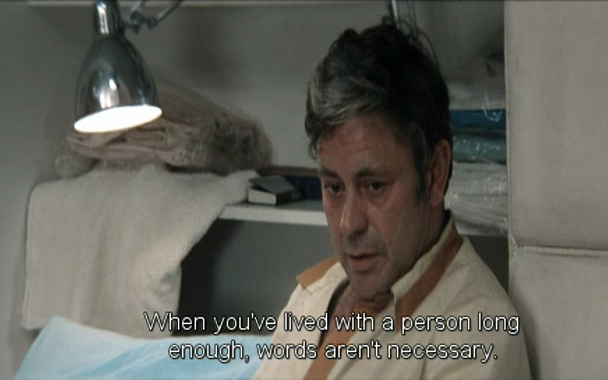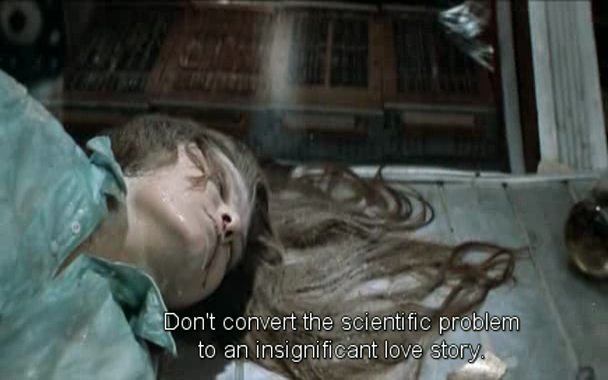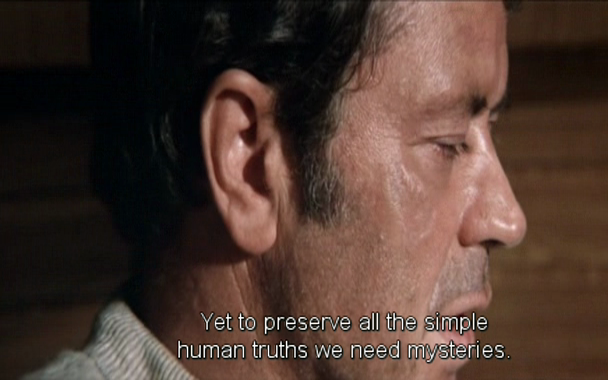-
#26 – Doomsday Machine (1972)
Doomsday Machine (1972)
Film review #26
Director: Herbert J. Leder
A disaster film in more ways than one…
A pair of American spies infiltrate a secret Chinese research facility and discover a doomsday machine, which will be activated in 72 hours. They take photographs and report back to the American government.
Meanwhile back in America, the spaceship Astra is being prepared to launch on a two year trip to Venus. Their launch window has been stepped up, and three of the men of the crew have been replaced by three women, incuding one woman, at the last minute, which has baffled the crew. Soon after the launch of the ship, military alerts are placed in effect across the entire world. It then dawns upon the four men and the three women of the Astra that they have been put together to restart the human race on Venus should the Chinese “doomsday machine” be activated. Sure enough, they look upon the Earth as it destroyed through a myriad of nuclear strikes…
As the seven-person crew continue to Venus, they realise that the weight of the ship means that a safe landing on Venus is impossible, and that the crew must be reduced to three to make a successful landing. They entrust the machine to make the decision for them, much to the chagrin of one of the crew. Two of the crew are involved in an altercation, and accidentally open the airlock, killing them both. Furthermore, another two leave the ship to dislodge a faulty booster to ensure the ships landing.
The two crewmembers are drifting off into space when they come across an abandoned soviet shuttle from an earlier mission, and go to board. They find miraculously that the craft is still operable and attempt to communicate with the Astra. There transmission is cut out and they are unable to hail them. Then, a voice calling itself the “collective conscious of the population of Venus” tells the craft that the Astra is no more, and that humans cannot land on Venus, because they have proven to be dangerous and destructive species with the destruction of their home planet. The voice then talks ambiguously about their being life beyond the universe as the film suddenly ends…
This film seems to have been plagued by a number of problems during it’s production. Primarily being that the film ran out of money before it being completed. The film was made in 1967, but an ending wasn’t made until 1972, when the rights were bought and the film finally released. The original budget itself wasn’t much to begin with, leaving the film to be classified very much as a B-movie. That said, movies have been made of higher quality with less money than Doomsday Machine had ($700,000 to be exact). There are very few sets or special effects, and there was a lot of stock footage used in place of actually making anything original, so I do wonder where all the money went…
The movie itself is a very bleak and unhopeful one. The Earth is destroyed, and the last seven members of humanity are picked off as a consequence of their own selfish actions, or circumstances which they cannot control. The ending does very little to leave a feel-good message in the mind of the viewer either. It is a depressing “what-fi” secenario that is played out before us, and sugar coating it with a happy ending may have taken away that dire warning. Being released during the Cold War, it’s message would certainly had relevance when it was made. Looking back on it today with what we know now, we find the whole pot of the movie even more futile, being that we know that Venus has a ground surface of 425 degrees celsius, and is covered in poisonous sulphuric clouds, therefore making it impossible for ground-based life to exist there. This fact has been known since about 1963 by the Mariner 2 probe, so why this film chose to ignore this fact and change the story to a jpourney to Mars I do not know. It could be that this knowledge of Venus wasn’t publically known, so the film could get away with it. It could have something to do with more Cold War politics, and keeping this information suppressed out of the public realm. If a movie tried to do this plot nowadays, the general public would probably dismiss it outright as it is widely known (taught in schools even) that Venus is unable to support human life. I guess a remake is out of the question then?
There are a lot of errors, both scientific and continuity are prevalent throughout this film. One of the most obvious ones is that a number of different stock footages are used to show the spaceship Astra which are completely inconsistent. One scene shows a ship that is shaped like a rocket, another is actual degraded footage from a NASA space launch, and in another it is a strange spherical ship that looks like a space station. This confused me quite a bit as I just didn’t know what I was looking at most of the time. There is a lot of techno-babble in this movie too, with some scenes consisting of the crew reading off numbers and values which make no sense. It’s that old cliché that TV shows and movies can get away with making up science because the public will just accept it. In this movie though, the crew just reels off numbers and such for quite a while that it gets very tedious.
The most significant thing about this film is the ending. During the last ten minutes, everything suddenly changes. Due to the film being completed five years after production was halted, the original actors, costumes or sets weren’t available, so at that one point during the movie, it becomes something else entirely. The spacesuits the two crewmembers are in suddenly change appearence completely, and their hemets are coincidentally opaque (To mask the fact that the actors are completely different no doubt). The voices still give it away that they are not the same people, namely the woman seems to have completely lost her Russian accent. Out of nowhere this voice claiming to be the “collective conscious of the population of Venus”, hinted at nowhere in the movie ends the movie with an ambiguous monologue about the mysteries of the universe. It seems to me that the people that bought the movie to make an ending from it wanted to make it have that 2001 vibe, carrying the shuttle off to the distant reaches of the universe. Honestly though, it doesn’t really work on this budget, and not being set up for in the rest of the movie just leaves a sense of bewilderment rather than wonder.
Doomsday Machine is not a movie you would want to watch nowadays. Everything about it is outdated, the production is poor, and the ending makes no sense (in a bad way). The fatalistic events of this movie mean there is nothing feel-good here so you really can’t watch it for a laugh at the bad production. Unless you want to see a prime example of how not to make a movie, this one is a miss for me.
-
#23 – Solaris (1972)
Solaris (1972)
Film review #23
Director: Andrei Tarkovsky
A sci-fi epic delving into the depths of an ocean planet and the human mind…Was this the Soviet Union’s 2001: A Space Odyssey?
Chris Kelvin, a psychologist is spending sometime with his parents at their home. He is reflecting on his life down by the lakeside before he is sent to a space station orbiting the oceanic planet Solaris the very next day. Before leaving, he destroys most of his possessions in a bonfire, and says goodbye to his Father, who he does not expect to see again.
Upon arriving at the space station, Kelvin learns that one his old friends, Dr. Gibarian is dead (having committed suicide), and the only two surviving crewmembers, Dr. Snaut and Dr. Sartorius are not forthcoming with information about what has happened, and act strange when Kelvin pushes them for answers. Snaut advises him to rest in the quarters, and everything will become clear…
Upon waking up from his sleep, a woman has appeared in his quarters, despite him blocking the doorway. It turns out it is Hari, his deceased wife. Not wanting to be taken in by this obvious trick, he tricks her into getting into an escape rocket and jettisons her into space, but burns himself on the exhaust rockets. While Dr. Snaut tends to his wounds, he explains that these “visitors” have appeared to everyone aboard, and are an incarnation of people they know, being generated by Solaris in some way.
Later, Hari appears before Kelvin again. When he leaves the room, she tears through a door after him. He watches her regenerate her injuries right before his eyes. When Dr. Sartorius calls a meeting with everyone, Kelvin introduces Hari as his wife and insists they treat her with respect. Sartorius reveals his latest discovery, that the “visitors” could be attacked with a radiation blast of x-rays. Hari realises she is not human, and composed of the memories of Kelvin’s dead wife. Eventually, Kelvin tells Hari how his real wife committed suicide ten years ago. Becoming increasingly unable to cope, Hari kills herself again by ingesting liquid oxygen. However, she soon recovers.
While he is sleeping, Kelvin dreams about his Mother. and multiple images of Hari. When he wakes up, Hari is not there. Snaut gives him a goodbye note from her, as she has gone to Sartorius and got him to destroy her. After broadcasting Kelvin’s brainwaves over Solaris, small islands have appeared all over Solaris. Now Kelvin has to make the choice of returning to Earth, or to live on Solaris where everyone he has known and loved has been reborn. In the end, we see Kelvin in front of his parent’s house, as the camera zooms up to reveal an island on Solaris…
I have previously watched the 2002 “re-make” of Solaris, but I was pleasently surprised to find they are two completely different movies, and the plot deviates at a number of points. This version is very much akin to Kubrick’s 2001: A SpaceOdyssey, which was released in the west about three years prior to Solaris. The movie is entirely Russian, which draws up interesting more interesting comparisons between eastern and western science-fiction. Running in at over two and a half hours, this is very much an epic story that focuses on a slowly revealed narrative and development. 2001 and Solaris have the theme of communication between alien species as a central theme. In 2001 this includes the relationship between man and machine too, and any extraterrestrial species is never revealed or explained. In Solaris, we are confronted with an alien form of consciousness that can penetrate into the mind and memories of humans, and the question of this being hostile communication or not plays an important part in the storyline. The music too is sparse and far between, the only reccuring music being Ich ruf’ zu dir, Herr Jesu Christ by Bach. The biggest contrast between the two is that while 2001has an exceptionally high budget and finely crafted sets, Solaris has a more sparse and limited design. Apparently the director wanted to heighten the focus on the characters rather than building an imaginary and complex future which other science-fiction does.
Perhaps it is unfair to compare the two movies so closely. Solaris is an epic tale in it’s own right and deserves to be looked at as an individual entity. The original novel, written by Polish writer Stanisław Lem was published in 1961. This adaption focuses on the human psychology of extraterrestrial contact and the impact it has on the central characters, while the original novel had more of a focus on the “futility of extraterrestrial contact”. The characters themselves are constantly put at odds with each other with their views as to what to do with Solaris, and whether it should be abandoned or understood. The compex relations between themselves and Solaris evokes all kinds of philosophical rationales to a viewer, never giving the answer, just merely asking the questions. Whereas science-fiction very much traditionally works around the premise of an imagined future, that aspect of science-fiction is very much disregarded in Solaris, giving no real indication of time and place, and focusing entirely on this complex relationship between unknown life.
Solaris was only released in five Russian cinemas originally, but it remained a staple of the cinemas for years, and earned it a cult status. It is a film that is still widely regarded as one of the most important in science-fiction, and while definitely not a casual, easy to watch film like the 2002 version, in my opinion it is worth finding the time to sit down and absorb its message.
